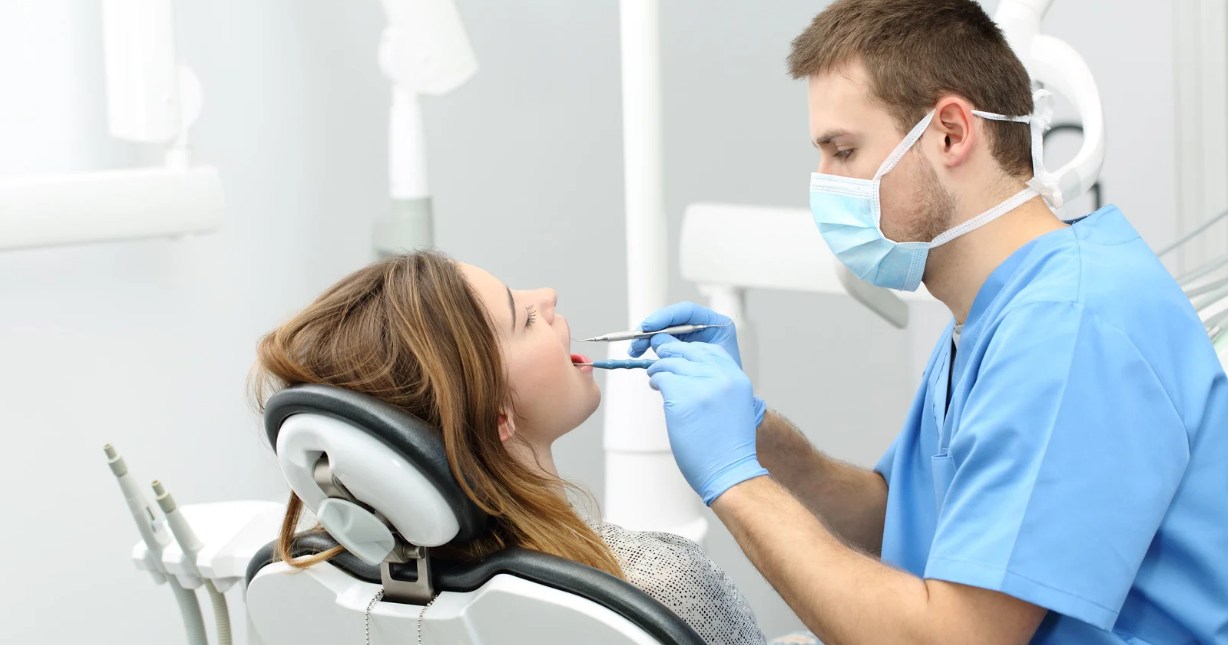
What to Do When You Have a Toothache



A toothache can be an incredibly uncomfortable and sometimes alarming experience. Whether it’s a dull ache, sharp pain, or throbbing sensation, tooth pain has a way of disrupting your daily routine and making even the simplest tasks seem unbearable. While the causes of toothaches range from minor issues like food lodged between teeth to more serious problems such as cavities or infections, it’s crucial to address the pain promptly to prevent further complications. This guide will walk you through the common causes of toothaches, how to find relief, and when to seek professional dental care. Understanding how to properly manage a toothache can make all the difference in protecting your oral health.
A toothache refers to pain or discomfort in or around a tooth, typically resulting from irritation or damage to the nerve inside the tooth or surrounding structures. This pain can range from mild to severe and often indicates an underlying dental issue.
Common misconceptions about toothaches:
Understanding the type of pain you’re experiencing can help identify the potential cause and guide treatment. Here are the common types of tooth pain and what they might mean:
1. Sharp pain:
This sudden, intense pain often occurs when biting down or touching the tooth. It’s commonly caused by:
2. Dull, persistent aches:
A lingering, throbbing ache is often linked to deeper issues such as:
3. Throbbing pain:
Throbbing pain, especially if accompanied by swelling, can indicate:
4. Temperature sensitivity:
If you experience discomfort when eating or drinking something hot, cold, or sweet, it might be due to:
5. Pain when chewing or biting:
Difficulty or discomfort while chewing can point to:
Recognizing which type of tooth pain you’re dealing with is the first step toward identifying the issue and seeking appropriate treatment. Always consult a dentist to address the cause and prevent further complications.
Toothaches can arise from a variety of dental and non-dental issues. Understanding the causes can help in seeking the right treatment and relief. Below are some of the most common reasons for tooth pain:
Cavities occur when bacteria in the mouth produce acids that erode the outer layer of the teeth (enamel), leading to tiny holes. If untreated, the decay can reach deeper layers of the tooth, causing sensitivity and severe pain. Regular brushing, flossing, and dental checkups can help prevent this common issue.
Gum disease starts as gingivitis, a mild inflammation of the gums, often caused by plaque buildup. If ignored, it can progress to periodontitis, which affects the tissues and bones that support your teeth. As the gums recede and infection worsens, toothaches and sensitivity may occur. Treating gum disease early is crucial to avoid permanent damage.
A cracked or fractured tooth can result from biting down on something hard, injuries, or weakened enamel. Even small cracks can lead to significant pain, especially when chewing or exposing the tooth to hot or cold temperatures. Dental intervention is necessary to prevent further damage or infection.
When wisdom teeth don't have enough space to emerge properly, they can become impacted, causing pain, swelling, and even infection. This issue is common in late teens and young adults and often requires extraction to alleviate symptoms and prevent complications.
Toothaches aren't always caused by dental issues. Sinus infections, for example, can lead to referred pain in the upper teeth due to pressure in the sinus cavities. Other non-dental causes may include nerve-related conditions or jaw problems like temporomandibular joint (TMJ) disorder.
A dental abscess occurs when bacteria infect the pulp (the inner tissue of the tooth), often due to untreated cavities or trauma. This infection can cause intense, throbbing pain, swelling, and fever. Abscesses are serious and require immediate treatment, such as antibiotics or a root canal.
If you're experiencing persistent tooth pain, it's essential to consult a dentist to identify the cause and receive appropriate care. Early intervention can prevent small issues from becoming bigger problems!

Toothaches can range from mild discomfort to severe pain, but not all require immediate attention. However, certain symptoms indicate a dental emergency that shouldn’t be ignored. Here’s what you need to know to determine when to seek urgent care.
If you experience any of the following symptoms, it’s essential to contact a dentist immediately:
Ignoring the signs of a dental emergency can have serious consequences, including:
While waiting for professional treatment, there are steps you can take to manage symptoms:
It’s important to listen to your body and take action when something feels off. If you’re experiencing any of these symptoms, don’t delay—contact a dental professional to protect your oral and overall health.
Toothaches can be caused by a variety of dental issues, from cavities to infections. Treatment options depend on the underlying cause, but here are some common approaches:
Each treatment option is tailored to the specific cause of the toothache, so it’s important to consult a dentist to determine the best course of action for your situation. Prompt treatment can help alleviate pain and prevent more serious complications.
Toothaches can be painful and disruptive, but the good news is that most of them are preventable with the right habits and care. Here’s how you can protect your teeth and maintain good oral health:
Proper oral hygiene is the foundation of preventing toothaches. Brush your teeth at least twice a day using fluoride toothpaste to remove plaque and bacteria. Pay special attention to all surfaces of your teeth, including the back molars. Don’t forget to floss daily, as it helps clean out food particles and plaque from areas your toothbrush can’t reach, like between your teeth and along the gumline.
Seeing your dentist regularly is essential for preventing toothaches. Schedule check-ups every six months to catch potential problems early, such as cavities, gum disease, or cracks in your teeth. Professional cleanings remove hardened plaque (tartar) that regular brushing can’t tackle and help keep your teeth and gums healthy.
What you eat significantly impacts your oral health. Limit sugary and acidic foods, as they can erode tooth enamel and lead to cavities. Instead, focus on a balanced diet rich in calcium, phosphorus, and vitamins, which help strengthen your teeth. Foods like dairy, leafy greens, nuts, and crunchy fruits and vegetables can aid in maintaining a healthy smile.
Taking precautions can go a long way in avoiding toothaches caused by physical damage. If you play contact sports or grind your teeth at night, wearing a mouthguard can protect your teeth from injury or excessive wear. Avoid biting down on hard foods like ice, popcorn kernels, or candy, as these can crack your teeth or cause damage to fillings.
Taking care of your oral health is essential, and knowing when to call your dentist can save you from bigger problems down the road. Here’s what you need to know:
Don’t wait until a small issue becomes a major concern. Toothaches, sensitivity, bleeding gums, or persistent bad breath can all be signs of underlying problems. Early intervention can prevent more serious issues like infections, tooth loss, or extensive dental work. If you notice anything unusual in your mouth, it’s better to call your dentist sooner rather than later.
Clear communication with your dental office helps them prepare for your visit. When calling, describe your symptoms in as much detail as possible. Mention the location of the pain, how long you’ve been experiencing it, and if there are any triggers, such as eating, drinking, or temperature changes. If there’s swelling, bleeding, or visible damage, make sure to let them know. Providing accurate information helps your dentist determine the urgency of the situation.
Tooth pain can be uncomfortable and disruptive, but prompt action and clear communication with your dental office can make a significant difference. By understanding potential causes, managing discomfort at home, and seeking professional care when needed, you can protect your oral health and prevent issues from worsening. Remember, regular dental check-ups and good oral hygiene practices are key to reducing the chances of experiencing tooth pain in the future. Always prioritize your dental health—it’s an essential part of your overall well-being.
Experiencing a toothache? Don’t wait—let Newbury Dental provide professional care. Our expert team will diagnose the issue and ensure you receive the right treatment to relieve your pain. Visit our Contact Page for more information or to book your appointment to get started on the path to a healthier, pain-free smile!

We look forward to meeting you! Call 780-760-3033, email info@newburydental.ca, or request an appointment online to set up your first visit. We’ll be in touch soon!